Архив в PDF формате
Дата публикации статьи в журнале: 2019/10/11
Название журнала: Восточно Европейский Научный Журнал, Выпуск:
49, Том: 6,
Страницы в выпуске: 32-37
Анотация: The article analyses the famous Uzbek scholar Pulat Soliyev’s treatise of the 20s-30s of 20th century. It also verifies his scientific position on the issues of important political events in Central Asia under the last Timurids, especially during the period of Shaibanids’ establishment. The author of the article deeply investigates the historiographic estimate of life of the Uzbek khanates, their commercial trade ties with Russia and
Eastern countries, given in Pulat Soliyev’s works
Ключевые слова:
history
source
work
research
article
attitude
conclusion
conclusion
comparative analysis
crisis
Данные для цитирования:
Turayev Khalim ,
Abdullayeva Feruza ,
.
ETHNICAL PROCESS AND SOCIO-POLITICAL, ECONOMIC HISTORY IN THE HERITAGE OF PULAT SOLIYEV (32-37). Восточно Европейский Научный Журнал. Исторические науки. 2019/10/11;
49(6):32-37.








